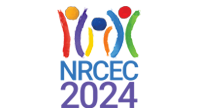101
Continuing the Conversation on Historical Inequities in Early Care and Education: Addressing Fair and Equal Compensation
- Chrishana Lloyd, Child Trends
- Michelle Maier, MDRC
- Yoonjeon Kim, Center for the Study of Child Care Employment, University of California at Berkeley
- Sara Mead, District of Columbia Office of the State Superintendent of Education
- Ola J. Friday, Early Educator Investment Collaborative
102
State of the Field Synthesis – Innovations in the Conceptualization and Measurement of the Outcomes of Early Childhood Programs for Today’s Diverse Early Childhood Landscape and Learners: Opportunities, Challenges, and Tensions
- JoAnn Hsueh, MDRC
- Sandra Barrueco, University of Maryland, Baltimore County
- Jocelyn Bowne, Massachusetts Department of Early Education and Care
- Cindy Decker, Tulsa Educare
111
Advancing Population Health and Well-Being for Historically Minoritized Populations: Implications for Practice and Policy in Early Childhood Systems and Programs
- Lina Guzman, National Research Center on Hispanic Children and Families, Child Trends
- Dolores Acevedo-Garcia, Brandeis University
- Deana Around Him, Child Trends
- Latrice Rollins, National African American Child and Family Research Center, Morehouse School of Medicine
201
Early Findings on the Implementation and Impacts of Washington, DC's Early Childhood Educator Pay Equity Fund
- Justin Brian Doromal, Urban Institute
- Erica Greenberg, Urban Institute
- Owen Schochet, Mathematica
- Andrea Vazzano, Child Trends
- Hannah Matthews, District of Columbia Office of the State Superintendent of Education
- Sia Barbara Kamara, District of Columbia Early Learning Collaborative
209
Exclusionary Practices in Early Childhood: Teacher Beliefs and Experiences
- Martha Buell, University of Delaware
- Christen Park, SRI Education
- Erin Tebben, The Ohio State University
- Amanda Williford, University of Virginia
- Marie Lamonica-Sarro, Virginia Department of Education
217
State of the Field Synthesis – Closing the Opportunity Gap for Young Children: Where Are We and Where Do We Go From Here?
- Milagros Nores, National Institute for Early Education Research (NIEER)
- Shantel Meek, Children's Equity Project, Arizona State University
- Gerry Cobb, Pritzker Children’s Initiative
- Ann Whalen, State of Illinois
- Sara Vecchiotti, Couch Family Foundation
301
Methods for Engaging Individuals with Lived Experience in Early Childhood Research: Partnering with the Early Care and Education Workforce, Families, and Communities to Deepen Understanding
- Laura Erickson, Office of the Assistant Secretary for Planning and Evaluation, DHHS
- Michelle Sarche, University of Colorado-Anschutz Medical Campus
- Kim Clum, Office of Planning, Research, and Evaluation, ACF
- Louis Gasper, Capacity Building Center for States at ICF
309
Connecting Housing and Early Care and Education to Understand Family Needs and the Value of Multi-System Interventions
- Melissa Kull, Chapin Hall at the University of Chicago
- Sara Shaw, Child Trends
- J. J. Cutuli, Nemours Children's Health
- Monette Ferguson, Alliance for Community Empowerment
- Nathan Bossie, U.S. Department of Housing and Urban Development
316
State of the Field Synthesis: Leveraging Mental Health Consultation Research and Evaluation to Advance Equity
- Deborah F. Perry, Georgetown University
- Sangeeta Parikshak, Office of Head Start, ACF
- Amittia Parker, Georgetown University
- Eva Marie Shivers, Indigo Cultural Center

